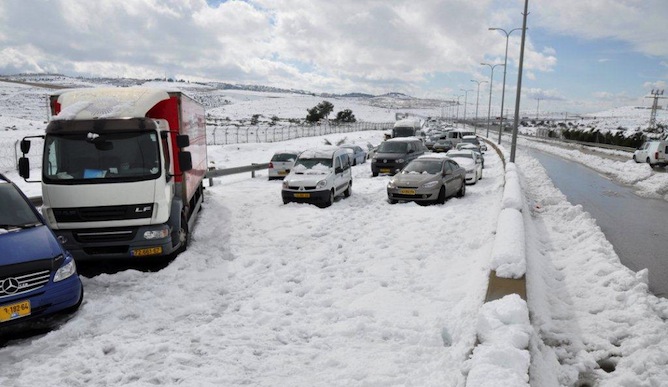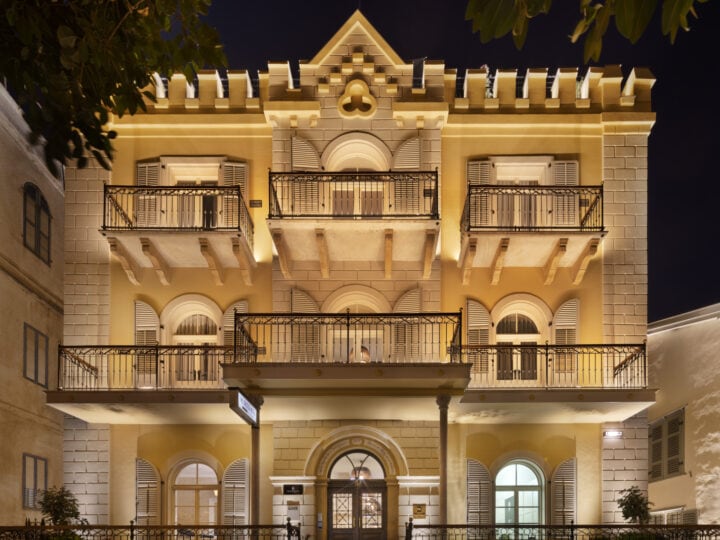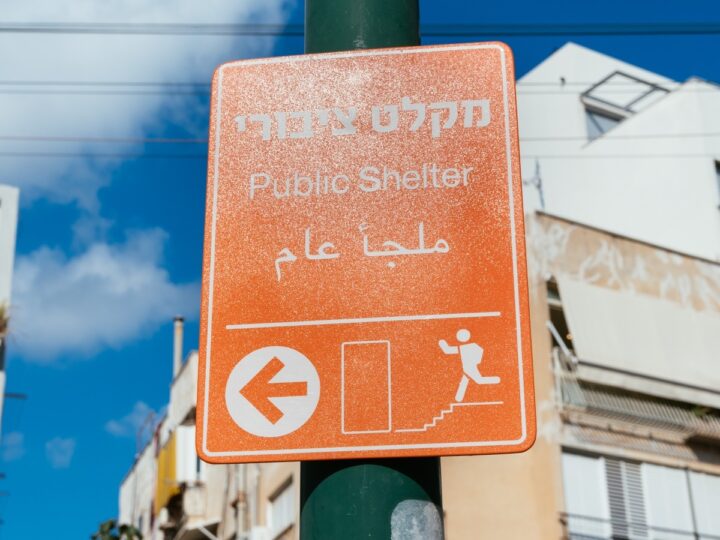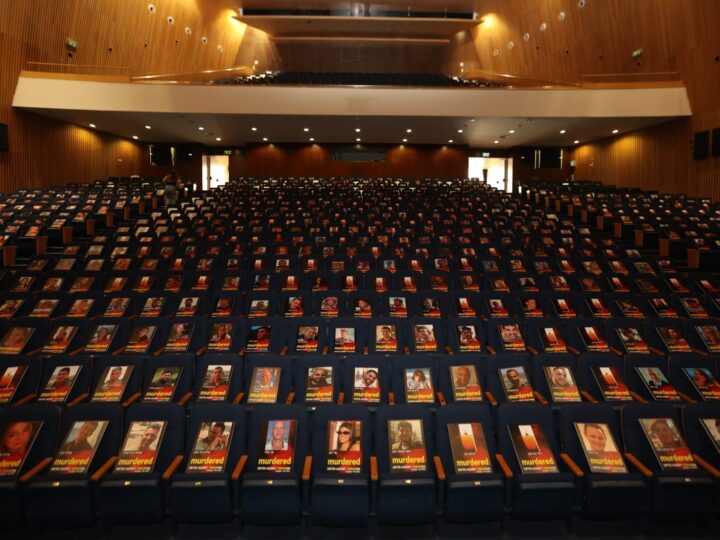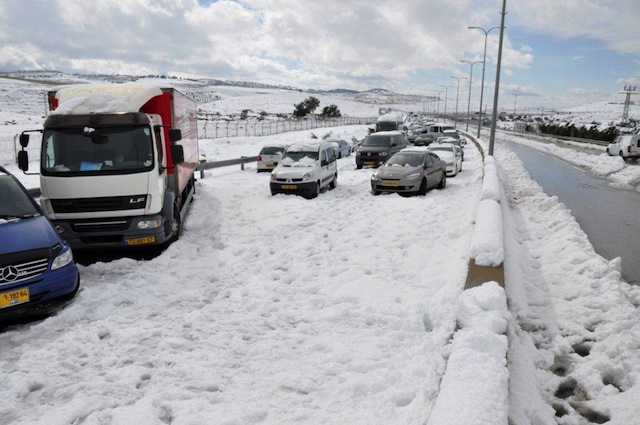
- Cars stuck on Route 1, the Jerusalem-Tel Aviv highway, on Sunday morning, after three days of heavy snowfall. Photo by Daniel Cohen/Flash 90.
My kids really wanted to go play in the snow. Although I grew up in Canada with more than enough snow to last a lifetime, the phenomenon of white powdery stuff is a wonder my twin six-year-olds and almost-four-year-old have yet to enjoy.
So, we planned a family trip to Jerusalem for last Friday. I called friends there to tell them of our plans and they promised to let us know whether the roads would be open.
There was no need for their phone calls on Friday morning. Like in all storms in Israel – rain or snow – the weather stole the headlines.
In fact, Israel’s news teams had been hyping the storm from the beginning of last week. First there were warnings of heavy rain and high winds, then hopeful but uncertain forecasts of powdery snow in Jerusalem and the higher areas around the country.
The forecasters were slightly off in their predictions. The cold snap did something other storms had failed to do: It cut off Jerusalem, Safed (Tzfat), the Golan Heights and some Galilee areas. Over 40 centimeters (16 inches) of snow piled up on Jerusalem; more than 60 centimeters (23.6 inches) fell in the Golan.
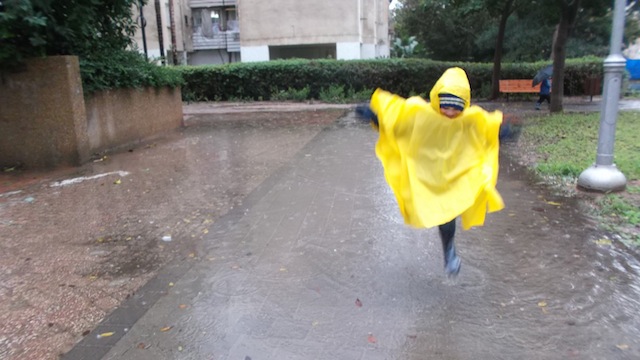
- Puddle-jumping in Tel Aviv. Photo by Viva Sarah Press
US Secretary of State John Kerry, in town for diplomatic talks, said the snow made him feel at home.
“I have heard of making guests welcome and feeling at home. This is about as far as I’ve ever seen anything go … giving me a New England snowstorm,” Kerry told a Reuters reporter as he viewed a snow-covered Old City of Jerusalem with Prime Minister Netanyahu.
Schools were closed, streets were flooded, electricity lines crashed down, trees squashed cars. Storm Alexa thrashed the record set by the “worst snowstorm in two decades” in Jerusalem last January, bringing the heaviest snowfall in 50 years.
“Sadly no sleds, no shovels, no snow ploughs … and for 12 hours no internet, heat or electricity (in that order),” a friend quipped on her Facebook status (posted via 3G, by the way).
Israel’s social media aficionados managed to upload stunning pictures documenting the snow/flash floods/rain/puddles/destruction around the country, despite difficult conditions.
More than 35,000 homes lost electricity – 16,000 of them for over 72 hours. The storm triggered some fatal accidents, and many people were left in freezing temperatures without food or heat. Some 1,500 people had to be rescued from vehicles. Emergency centers were set up to take in those stranded by the storm.
The government even lifted a Sabbath public transport ban and allowed trains out of Jerusalem.
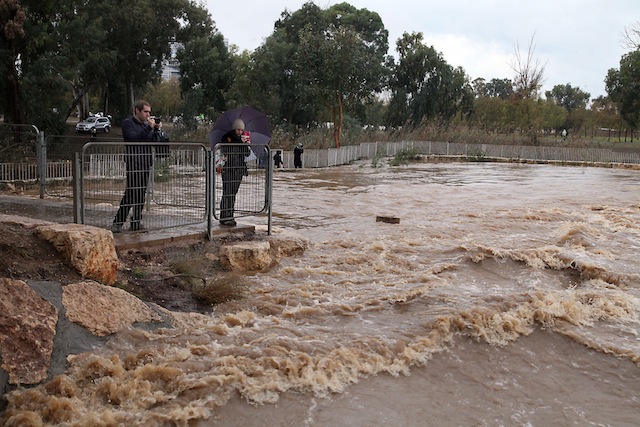
- The Seven Station point, where the Yarkon and Ayalon rivers converge, is flooding after heavy rain in Tel Aviv. Photo by Gideon Markowicz/Flash90
Israelis were told over public broadcasts not to enter or leave Jerusalem by car – and in any case several highways and main roads leading to the city were closed.
A snow day for my Tel Aviv-raised children would have to be delayed. We did enjoy a “camping at home” adventure when the rain and hail swept into Tel Aviv and took our electric power with it. As any good blogger would do, I posted a status update on Facebook and then later uploaded (via 3G) photos of me donning a head lamp and serving dinner in the dark.
Snow angels and snowball fights would have to wait. We did the next best thing and set out for our annual puddle-jumping excursion. It was cold and wet, but lots of fun.




